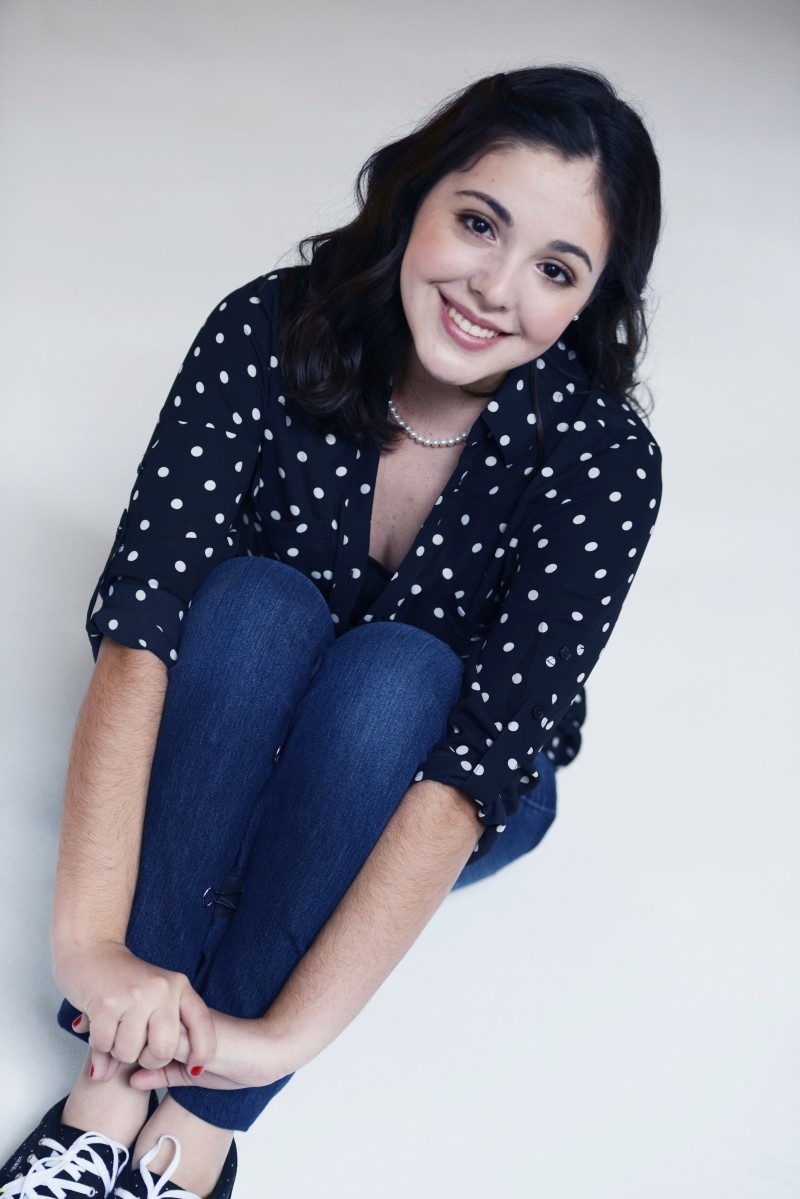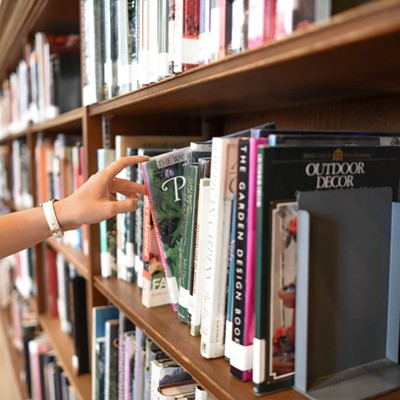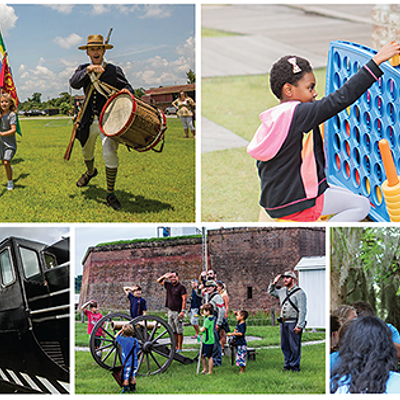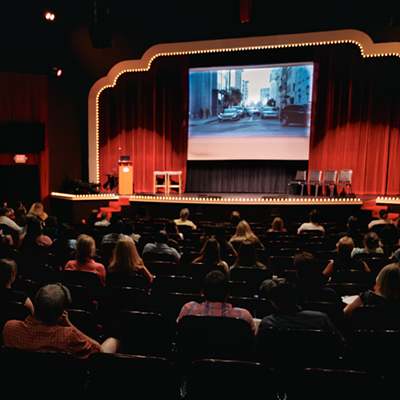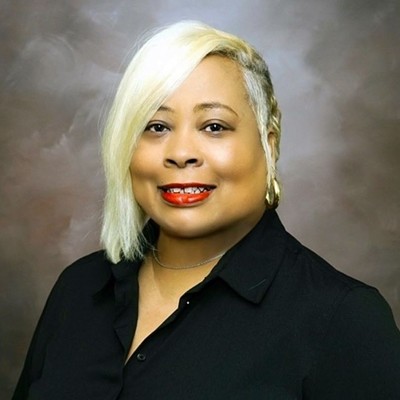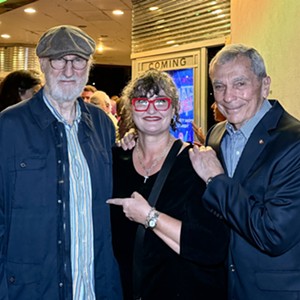WHEN Maya Van Wagenen was in eighth grade, she was as socially awkward as a David Bowie song: Spit upon, immune to consultations, and quite aware of what she was going through.
But then came the ch-ch-changes: The self-proclaimed geek and Lord of the Rings groupie came across a copy of Betty Cornell’s Teen-age Popularity Guide, published in the 1950s and full of advice on good posture and wearing a hat to church. Maya decided to conduct a social experiment to see if the book’s claim that “with a little hard work, poise and polish,” popularity was attainable for anyone.
For the entire school year, she followed Betty’s advice on make-up and attitude, “no matter how embarrassing or complicated.” The results were indeed an uptick in her middle school social standing as well as an intelligent, charming memoir about the true meaning of popularity.
Popular: A Memoir has become a New York Times bestseller, and Steven Spielberg has bought the movie options. Following its smashing success, Betty Cornell’s book has also been re-released and is enjoying new life.
These days, instead of hiding out in the library, Maya has embarked on a whirlwind book tour, including an appearance on the Today show. She’ll be in Savannah at the Southwest Chatham Library this Thursday, Oct. 16 as part of Live Oak Public Libraries’ Teen Read Week.
Now a junior in high school, Maya took a break from her pre-calculus homework to chat with Connect about her newfound confidence, online etiquette and the occupational possibilities of piratehood.
Your book is a bestseller, you’re being courted by Hollywood. Turns out you’ve become quite popular! How’s that affected your life?
Maya Van Wagenen: In many ways it hasn't too much. I go to a regular high school, I hang out with friends on weekends, I watch a lot of Netflix. I love sci-fi, I'm watching Battlestar Galactica right now. I'm also a huge fan of Star Trek and Dr. Who.
So your nerdy streak is still intact after all your success?
MVW: Definitely!
What was the biggest challenge about your experiment?
MVW: The absolute hardest thing was stepping out of my shell. Then there was dressing in a way that was not only unconventional for where I was but very differently from how I previously dressed the first two years of middle school, so people's expectations of me sort of crumbled. They didn't know quite what to do with that. That was difficult.
When I was following the advice about fashion and make-up, I kind of took it as a costume. That was really powerful, because when anyone said anything mean about me, it wasn’t really me they were reacting to. Whereas previously, anything mean they said hurt so bad because it was a direct reflection of the person who I was.
Did your notion of popularity change?
MVW: Completely! In my mind, the people who were popular were always incredibly mean to me. They were the ones who everybody knew about, who all sat together, who exuded that confidence. But later on, when I met them and talked with them, I realized how insecure a lot of them felt.
I think the most important message of Betty Cornell’s book is that popularity as she described it is very different than what we see now on television shows and movies. It’s shown as these hierarchical structures that are based on bullying and peer pressure.
That wasn’t at all the type of popularity that Betty talked about. She based it on something positive, on presenting yourself in a way that made you feel confident and putting your best self forward and lifting others up. Not gossiping, not tearing people down, and being a good friend before anything else.
The biggest lesson of course is that popularity goes much deeper. That it’s important to treat others kindly, always. And to stand up for people.
After your book came out, you got to spend time with Betty Cornell. What was she like?
MVW: She was amazing. Exactly how I would have expected—warm and wonderful. I love keeping in contact with her through phone calls and email. She feels like a part of my family.
I draw a lot of inspiration from her. She was a working mom at a time when that was not the norm at all. She wrote, she modeled, she would bring her kids with her.
How would your own “how to be popular” advice book differ from Betty Cornell’s?
MVW: I'm sure there would be a chapter about social media. Sometimes I wonder would Betty would say about Facebook and Twitter and Instagram! I think that interactions online should be like interactions in person. It's a lot easier to be negative and cruel when you're not face-to-face with someone.
Your book takes place in a border town in South Texas, but you've since moved to Statesboro, Ga. What was it like to start all over in a new town at a new school?
MVW: As moving always is, it was terrifying. At the same time, I've never been so prepared for anything in my life.
Going off the Betty Experiment, I was on such a high. I made friends that first year that have become best friends. So it wasn’t as hard as it could have been.
In Betty’s time, the expectation of what a young woman could grow up to be was limited. You have a lot more opportunity, and coupled with the confidence her advice gave you, what do you foresee for yourself in the future?
MVW: I haven't necessarily figured it all out yet. I go back and forth, kind of like a little kid. One day I want to be a teacher. Or a professor. Or a pirate [laughs]. I read The Confessions of Charlotte Doyle as a little girl and the pirate dream has never quite gone away...
I know that whatever I do, I will always write. Writing is such an important part of my life and my world and how I process information. It’s more a necessity than anything else.
All this success has really taken you out of your comfort zone. How do you deal?
MVW: What keeps me grounded is talking with readers. I get letters about Popular from readers of all ages, men and women who read it with their children, grandparents who saw it on the coffee table and just started reading. It's been so incredible to see the effect of my opening up—which is very scary, being that honest—that's it's led to positive things.
That gives me courage I need, thinking of them, to really push me out of my shell.
As an introvert at heart, it’s difficult to do things like that. But it’s so rewarding.

